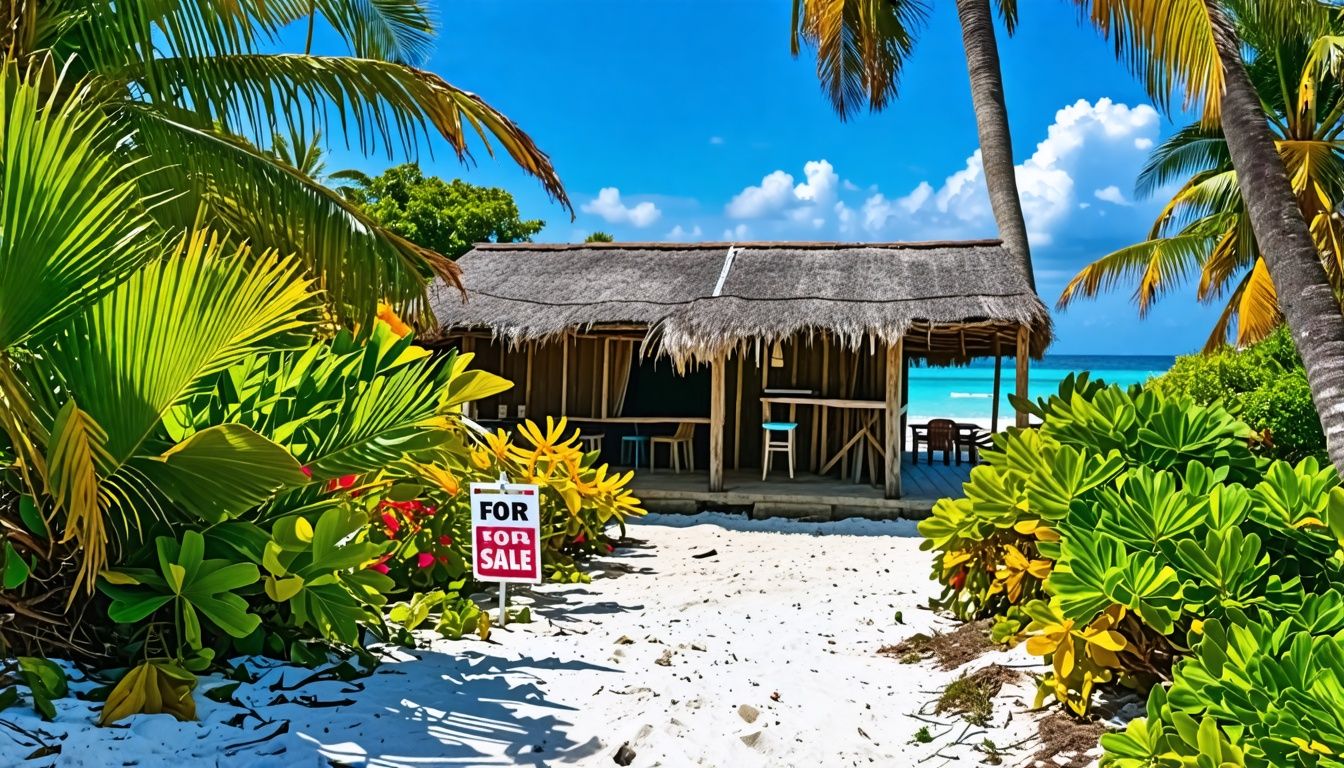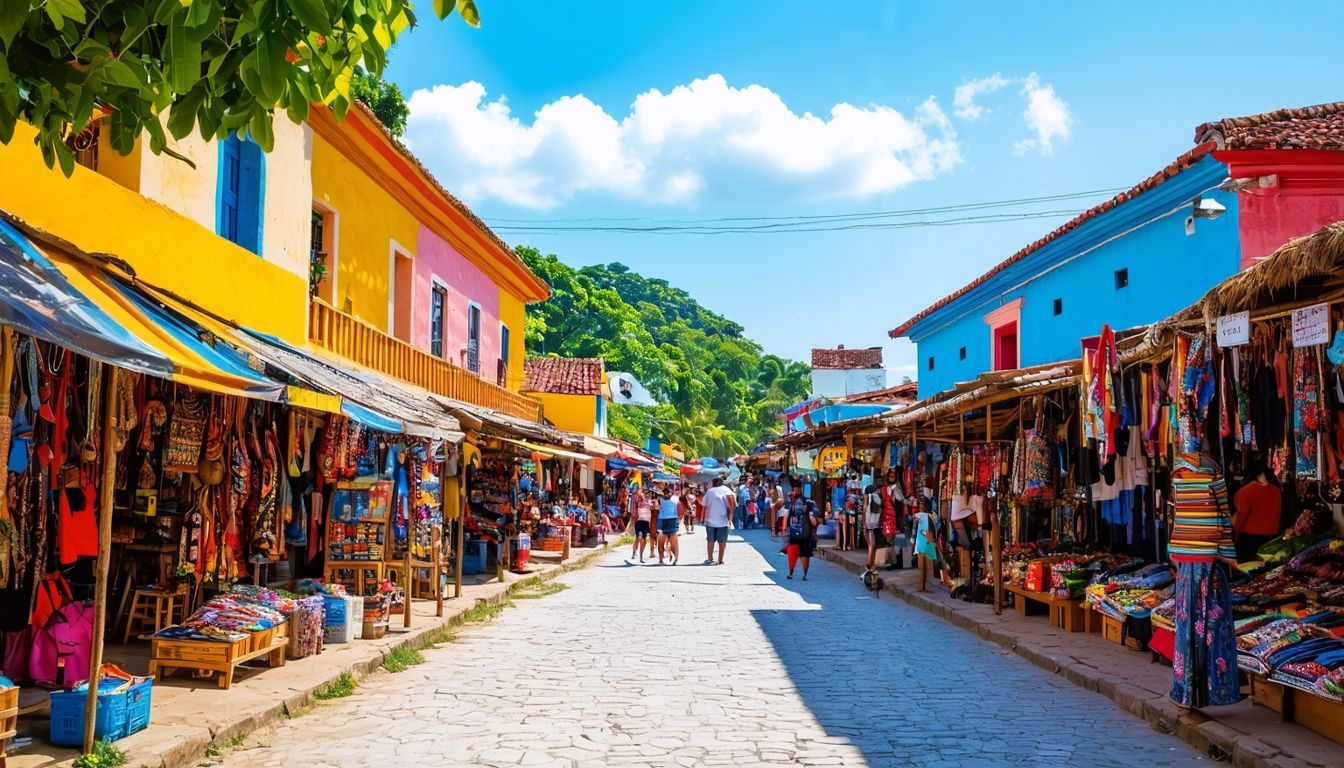Demystifying Dominican Republic Real Estate Law for Buyers and Investors

Buying property in the Dominican Republic sounds exciting, right? Yet, many people find the legal side confusing. Here's a fact: Foreigners have as much right to buy land here as locals do.
Our article breaks down Dominican Republic real estate laws into simple steps. This makes it easier for you to own your dream property. Keep reading to learn how!
Key Takeaways
- Foreigners can buy property in the Dominican Republic just like locals, but they need to register with the tax office and follow specific tax rules.
- The government owns all land initially, making it essential for buyers to check that their chosen property is properly listed at the Title Registry Office to ensure a smooth purchase process.
- Property transactions involve several steps, including due diligence, understanding market values, involving a notary public for legal paperwork checks, paying necessary taxes for transfer and registry, and obtaining Certificates of Title.
- Laws around leasing properties provide protections and outline rights for both owners and renters. Business premises leases often include yearly rent increases while residential agreements detail tenant rights and landlord responsibilities.
- Understanding local real estate laws, such as Law No. 189 - 11 which aims to enhance mortgage markets by offering tax breaks, helps potential buyers or investors make informed decisions when considering purchasing or investing in property in the Dominican Republic.
Overview of Dominican Republic Real Estate Law
Dominican Republic real estate law is shaped by Property Registry Law No. 108-05. Laws from around the world also shape it, making sure buyers and sellers meet fair rules.
Property Registry Law No. 108-05
Property Registry Law No. 108-05 makes it a must for all land in the Dominican Republic to be listed at the Title Registry Offices. This law says that any documents or agreements changing property rights need registration to count against other people.
It covers actions like creating, moving, showing, changing, or ending rights on real estate and adding burdens and liens.
All documents shaping property rights must get recorded to protect those rights against others.
This setup aims at making dealings with real estate clear and legal. It targets avoiding conflicts over land ownership by keeping detailed records of who owns what. The process ensures everyone follows the same rules when they buy, sell, or alter property ownership in some way.
Influence of International Laws
International laws do not shape real estate rules in the Dominican Republic. Each country has its own set of laws for land deals, and this Caribbean nation is no different. The legal system here follows local statutes strictly.
This makes it clear that buying property involves following the country's specific guidelines rather than relying on global standards.
Foreign buyers should know they have equal rights to purchase lands just like locals. They must sign up with the tax office in the Dominican Republic and take care of their tax duties.
This step ensures everyone plays by the same book, keeping transactions smooth and fair.
Next, let's explore what owning property in the Dominican Republic looks like.
Understanding Ownership in Dominican Republic Real Estate
In the Dominican Republic, the government first owns all land. People from other countries can also own property there.
Government as the Original Owner
The government holds all land from the start in the Dominican Republic. Every piece of property needs registration at the Title Registry office. This setup follows the Torrens system, which makes sure every listed estate has a clear and undisputable owner.
It's a unique process that helps keep track of who owns what land.
When buying real estate in the Dominican Republic, finding out if your chosen property is properly listed in this registry is crucial. Doing so means making sure you're dealing with actual owners and not someone claiming to own land they don't have rights to.
This step protects buyers and ensures smooth real estate dealings.
Foreign Ownership Regulations
Foreigners have the same rights as locals to buy land in the Dominican Republic. They just need to sign up with the Dominican Tax Authority and handle tax rules. Since 2007, Law No: 108-5 says foreign buyers must get a Certificate of Title from the Title Registry Office.
This rule helps everyone play fair and makes sure ownership is clear.
People from other countries can also send their investment money back home freely. This is great news for those looking to invest in real estate here. With these regulations, buying property in this beautiful country is straightforward for foreigners.
Keeping up with necessary paperwork ensures a smooth process for all involved.
Legal Rights of Property Owners in the Dominican Republic
Property owners in the Dominican Republic have strong legal protections. The law treats locals and outsiders equally. This means anyone from another country can buy and own land just like a citizen does.
There's no need to worry about being treated differently because of where you're from.
To keep rights safe, all property deals must be recorded at the Title Registry Office. This step is crucial for proving who owns the land or house. Before buying, everyone should check that there's a valid Certificate of Title.
Also, getting a proper survey helps avoid future disputes over boundaries or size. These actions help make sure your ownership is secure and respected by law.
Process of Buying Property in the Dominican Republic
Buying property in the Dominican Republic starts with checking the land's history and worth. You need to work with a legal expert who checks all details and helps figure out the right price.
Due Diligence and Title Search
Understanding the steps in due diligence and title search is crucial before buying property in the Dominican Republic. This ensures you're making a wise investment. Here's a guide to help you through this important process:
- Check the property's legal status in the Title Registry. All land must be registered, so confirm its registration to avoid legal issues.
- Use a lawyer to perform a detailed title search. They can access public records to ensure there are no hidden problems.
- Look for any liens or encumbrances on the property. These could be debts or legal claims that need settling before purchase.
- Verify the property's boundaries and size with an official survey document. This prevents disputes over land later on.
- Ensure the seller has the right to sell the property. The official certificates of ownership should be in their name.
- Ask for a copy of the seller's identification card and property documents. This includes tax payments and utility bills, showing they've responsibly managed the estate.
- Foreign buyers should register with the Dominican Tax Authority as advised by law, and understand their tax obligations.
This list guides you through key steps in ensuring your real estate investment is secure and lawful, avoiding future complications and extra expenses.
Understanding Market Value and Price
Figuring out the market value and price of a property is like solving a puzzle. You need to look at what similar homes are selling for in the area. This helps you see if a house is priced right or not.
Real estate agents can give you this info, making it easier to decide on your offer.
Market value shows us what buyers are willing to pay for properties like ours.
Also, understanding how external factors impact prices is key. Things like changes in interest rates or new zoning laws can affect how much people will pay for a home. By keeping an eye on these shifts, you stay ahead in making smart buying choices.
Involvement of a Notary Public
After figuring out the market value and price of a property, it's time to bring in a notary public. This person is key to making sure everything goes smoothly with buying your house or land.
The notary checks all the paperwork and makes sure it follows the law. They play a big part in keeping buyers and sellers safe during the deal.
The notary public has several jobs. They make official records of agreements related to buying property. These pros also help register the change of ownership so that it’s legal for everyone else too.
Having them involved gives both buyer and seller peace of mind that nothing will go wrong legally with their transaction.
Key Aspects of Real Estate Transactions
In buying or selling property, key steps include making a sales agreement, paying taxes for transfer and registry, and getting the title certificate. This makes sure everyone agrees on the deal terms and that the new owner's rights are official.
Dive deeper to understand how these steps protect your investment in real estate.
Deed of Sale (Contrato de Venta)
A Deed of Sale, or Contrato de Venta, is a key document in buying property. It shows that the buyer and seller agreed on the sale and the price. This agreement must be in writing to be official.
Both parties sign it to show they agree with everything said.
The Deed of Sale stands as your firm promise of ownership transfer—a cornerstone in securing your new asset.
After signing, this document goes to a public notary. The notary makes sure it's real and follows laws. Then, they record it at the Title Registry Office. This step is crucial for protecting your rights as the new owner.
Without this, you might face troubles proving you own the property later on.
Transfer and Registry Taxes
After signing the deed of sale, buyers must handle transfer and registry costs. Buyers pay these taxes to make the property legally theirs. The law says that the buyer covers the transfer tax, but sometimes sellers and buyers agree to split it in the contract.
This tax is a percentage of the real estate's price.
To complete this step, buyers register with the Dominican Tax Administration. They then report their purchase to get a new title under their name. This process involves paying a fee based on the value of their new property.
It ensures that everyone knows who owns what land or house.
Certificates of Title
Certificates of Title are essential in the Dominican Republic. They show who owns the land. The Title Registry Office gives out these certificates when someone buys property. This step is crucial for all property deals.
People must register their claim to protect it against others.
A Certificate of Title also records any mortgages on the property. This information helps buyers and lenders know if the land has debts attached to it. Before moving on to leasing properties, understanding how these certificates work is key.
Leasing Properties: Laws and Regulations
Leasing homes or shops in the Dominican Republic follows strict rules. These laws help both building owners and renters know their rights.
Leases of Business Premises
Business owners need a place to operate, and leasing premises is a common choice. A lease term can be long or short since there's no fixed rule on how many years it must cover. Parties set the term by agreeing together.
Often, leases for shops or offices include a clause that raises the rent each year. This raise could be a set rate or tied to national inflation.
Rental income from these properties faces taxes – 27% for companies and 10% for individuals.
Tenants have the right to pass their lease to someone else or sublet part of the property unless their contract says they can't. Also, insurance might not be necessary but parties can decide to add it into their agreement if they want extra security.
Next up: understanding rules around renting homes will shed more light on residential agreements.
Leases of Residential Premises
Shifting focus from business to personal living spaces, leasing laws for houses and apartments come with their own set of rules. Tenants have rights that protect them, ensuring they live peacefully without unexpected evictions or changes in rent.
These rules help both the homeowner and the person renting understand what is expected of them. For instance, a lease agreement outlines how long someone can stay, how much they pay, and other important details like utility payments.
Landlords must follow these guidelines closely to ensure fair treatment of tenants. They need to give proper notices before visiting or making any major changes to the property. This ensures everyone knows what is happening and agrees to it beforehand.
Also, if repairs are needed, the landlord usually takes care of them unless the tenant caused the damage on purpose or by being careless. These arrangements make renting a place smoother for everyone involved.
Understanding Property Taxes and Inheritance Taxes
Property taxes in the Dominican Republic depend on how much your property is worth. The government sets the rate at 1% to 3.3%, based on where your property is and what kind it is.
This means, if you own a house or land there, you need to pay this tax every year. Knowing these rates helps plan your finances better.
If someone leaves you a house or land when they pass away, you'll have to pay inheritance taxes too. These charges can be between 3% and 25% of the estate's value that you're getting.
It's key for foreign investors to understand these costs so they aren't surprised later. Keeping up with these rules makes owning property smoother in the long run.
Real Estate Financing and Banking Laws
After exploring topics related to property taxes and inheritance taxes, another vital area involves understanding how financing and banking laws support the real estate market in the Dominican Republic.
Law No. 189-11 is a key piece of legislation that aims to enhance the mortgage market. This law helps more people get access to low-cost homes by offering tax breaks and other benefits.
Thanks to this law, the total value of home loans reached DOP 326.935 billion, helping over 132,000 families by August 2023.
The Central Bank plays a significant role in making housing more affordable for everyone. It works with banks and other financial institutions to lend money for building budget-friendly houses.
These efforts include supporting partnerships between public sectors and private trusts focused on creating low-cost housing projects. Through these actions, they make sure that more people can own a home without breaking their bank accounts.
Impact of Climate Change and Environmental Law on Real Estate
Climate change affects how we deal with land and buildings. The Dominican Republic aims to cut its greenhouse gas emissions by 25% from 2010 levels by 2030. This goal means real estate must adapt to new environmental laws.
Builders and owners now think about the carbon footprint of their properties. They consider energy-efficient designs and materials that are better for the environment.
The National Council on Climate Change leads in setting rules to fight climate change. For real estate, this could mean changes in construction practices and more green spaces around buildings.
There are no current rules on how much energy a building can use, but this might change as the country works toward its emission goals. These actions show how seriously the Dominican Republic takes climate action, influencing every part of real estate from planning to construction.
Conclusion
Buying property in the Dominican Republic can be a smart move. You learned about laws, ownership rights, and taxes. This guide showed you how to check a property's history and understand its value.
If you're thinking of investing or buying there, this knowledge is key. Want to make smart choices in real estate? Use this information and consider getting expert help for a smooth experience.
Go ahead, take that step towards owning your dream property!
FAQs
1. What rights do tenants have in the Dominican Republic?
In the Dominican Republic, tenants' rights include protection under lease agreements from eviction without due cause and the right to a receipt for rent paid. These laws ensure fair treatment for both parties involved.
2. How does estate tax affect property inheritance?
Estate tax plays a crucial role when inheriting real estate in the Dominican Republic. The law includes forced heirship rules, meaning certain family members are entitled to a portion of an estate, impacting how property is distributed.
3. Can foreign investors buy real estate easily?
Yes! Foreign investment in real estate is welcomed and protected by law, including owning land and properties outright. However, buyers should be aware of specific requirements like registering with the internal revenue office or dealing with maritime zone restrictions near coasts.
4. What should I know about mortgages and loans against property?
Understanding terms like mortgagor (borrower), mortgagee (lender), and conventional mortgages helps navigate buying properties on loan. Properties can be mortgaged as security interest for loans; however, it's important to understand all legal implications.
5. Are there any taxes I should be aware of when selling property?
Absolutely! Capital gains tax is relevant if you make money from selling your property at a higher price than you bought it for... Also, value-added tax (VAT) may apply to some transactions related to real estate sales or services.
6. How do I ensure my title is secure when buying property?
Conducting thorough title searches through the land registry ensures no surprises regarding ownership claims or easements on your new property... It's also wise to familiarize yourself with terms like "Torrens title system" which provides indefeasible title – meaning once registered, your ownership is legally guaranteed.
Categories
- All Blogs (61)
- agent (1)
- branded residence (1)
- business (2)
- buy (2)
- buying (23)
- cabarete (1)
- cap cana (6)
- caribbean (2)
- casa de campo (6)
- celebrity (2)
- commercial (1)
- construction (2)
- dominican republic (9)
- evaluation (1)
- event (1)
- financing (1)
- golf (2)
- golf resorts (2)
- Grupo De Vale (1)
- hotel (1)
- insurance (1)
- investing (26)
- las terrenas (1)
- law (3)
- lawyer (1)
- legal (1)
- luxury (1)
- market (1)
- north coast (2)
- properties (7)
- property inspection (1)
- property tax (1)
- puerto plata (1)
- punta cana (3)
- real esate (1)
- real estate (33)
- renting (5)
- resorts (1)
- selling (5)
- selling, (1)
- tax (3)
- usa (1)
- vacation rental (2)
Recent Posts










GET MORE INFORMATION NOW

